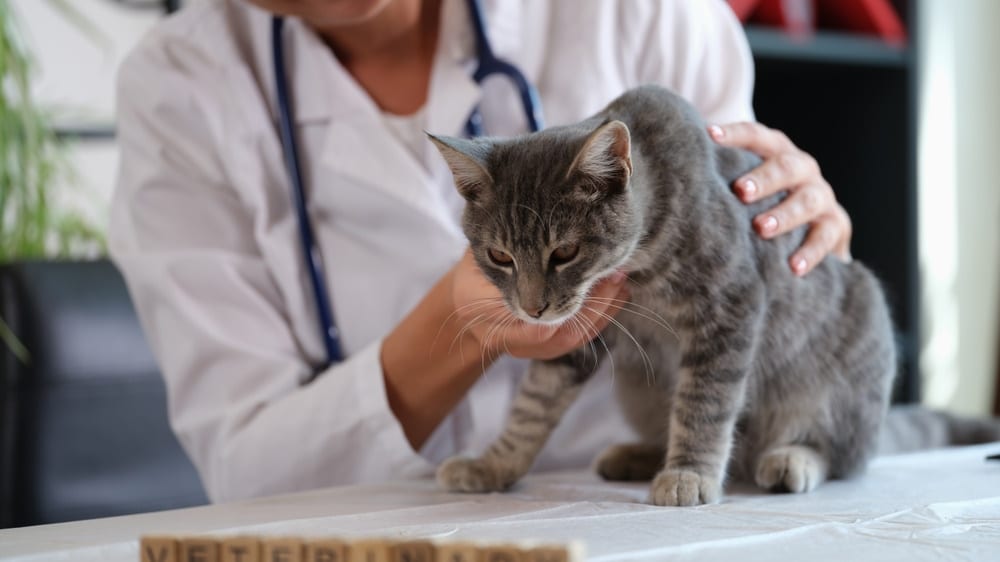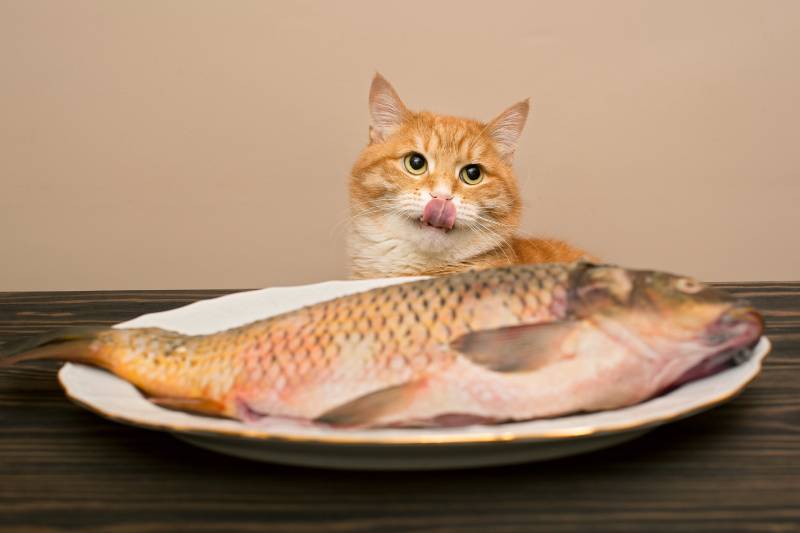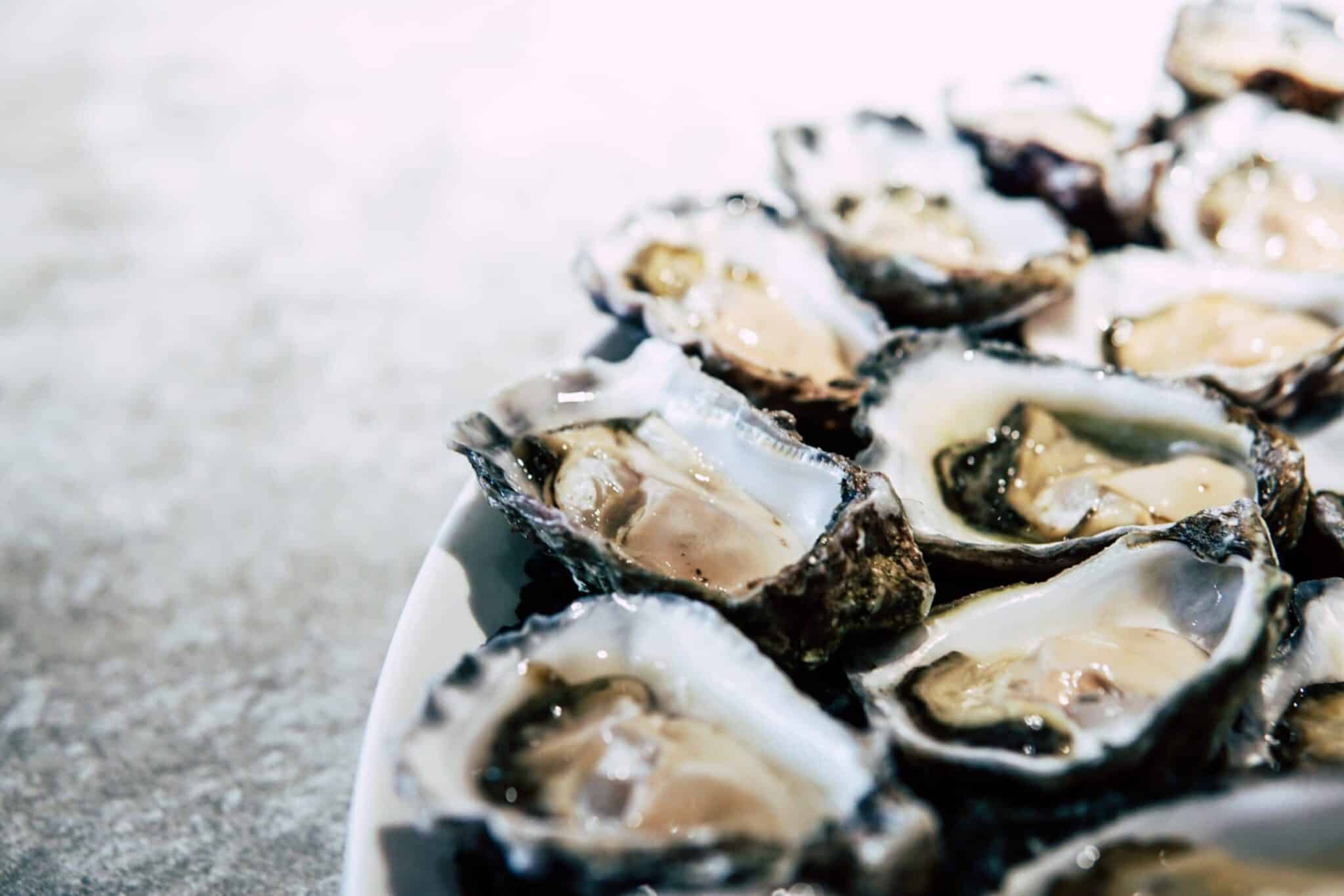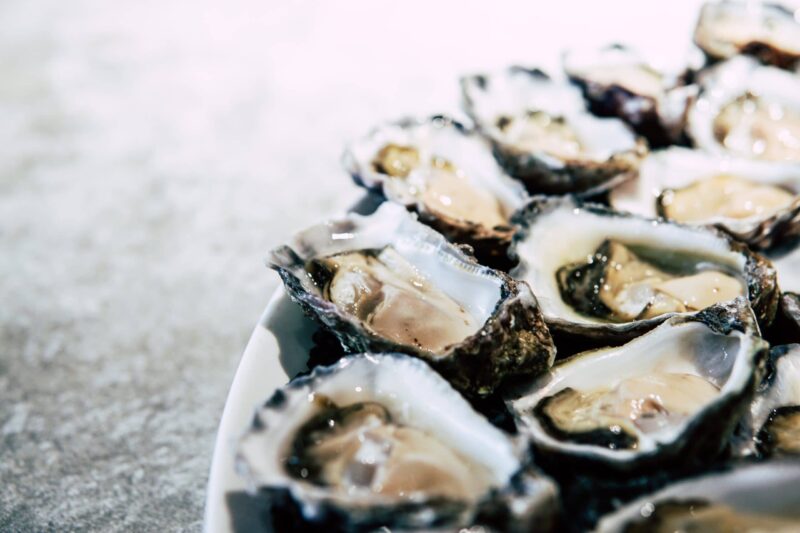The feline love for various types of seafood is well-known, but what about mollusks like oysters? The short version is that a plain, fully-cooked oyster is unlikely to harm a cat, but raw oysters and their shells are not safe at all for them. Oysters cooked with certain ingredients, like garlic, can also be dangerous.
In this guide, we’ll explain why it’s not generally recommended to feed oysters to cats and the risks involved.

Are Raw Oysters Safe for Cats?
Raw oysters are absolutely not safe for cats to eat because they may contain harmful infectious organisms, including but not limited to norovirus and Vibrio vulnificus. It’s very easy for oysters to become contaminated with bacteria and viruses because they inhabit warm waters and are filter feeders. This allows the bacteria to become concentrated in their tissues.
If a cat consumes raw oysters containing bacteria, viruses, or parasites, they can become very sick. Signs that your cat has eaten something problematic include vomiting, diarrhea, appetite loss, excessive thirst, lethargy, and weakness. If this happens, please contact a vet straight away.
In addition, raw shellfish contains an enzyme called thiaminase which can bring down your cat’s natural thiamine levels. This can cause thiamine (vitamin B1) deficiency in cats when eaten at certain levels. Taking all this into account, cats should never eat raw oysters under any circumstances.

Can Cats Eat Cooked Oysters?
Technically, a non-allergic cat could get away with eating plain (no seasonings at all) and properly cooked oysters in small amounts because the cooking process kills the bacteria in raw oysters. Oysters are also a good source of omega-3 fatty acids, protein, vitamins (including vitamin B12), and minerals.
However, oysters are often cooked with seasonings like garlic, which are bad for your cat and can make them very sick. Furthermore, cats aren’t used to eating oysters, so even cooked ones could cause digestive upset. It’s best to stick to safer treats for your cat.

Can Cats Eat Fish?
Cats have long been associated with an undying love for fish but it’s actually not something they should eat on a daily basis (unless it’s an ingredient in a complete and balanced commercial food formula). The reason for this is that fish cannot give your cat all the nutrients they need, which is why specially formulated, nutritionally complete cat foods exist.
As we touched on earlier, several types of raw fish, including catfish, carp, herring, and cod, contain thiaminase, which can cause thiamine (B1) deficiency, and is one of the reasons offering raw fish as part of your cat’s regular diet is not at all a good idea. The other is that raw meat and fish can contain harmful bacteria for pets, including Listeria and Salmonella, as well as parasites.

What About Cooked Fish?
A little bit of thoroughly cooked and deboned fish now and again as a treat is perfectly fine, as long as it’s cooked without added seasonings and oils. It’s best to treat fish, like other cooked meats, as a treat rather than a main meal.
However, you should avoid fish that are known for containing high mercury levels due to being harvested at a later life stage because mercury poisoning, though rare in cats, is a possibility, if they eat enough. Some types of tuna (including canned albacore tuna) are high in mercury, as are swordfish, tilefish, marlin, orange roughy, and king mackerel among others.
If your cat has a taste for tuna, it’s best to give them a little canned, water-packed tuna infrequently, and avoid tuna packed in oils or with salt. Cooked, plain salmon is another much-appreciated occasional fishy snack.

Final Thoughts
To sum up, feeding raw oysters to a cat is an incredibly risky business and shouldn’t happen under any circumstances. For fish-loving cats, you might want to consider offering a piece of cooked fish as a treat instead or looking for a complete, fish-flavored food formula—as long as your cat isn’t allergic, of course.
If you’re not sure which kind of food would be best for your cat or whether or not certain foods are appropriate for feeding, please consult your vet.
Featured Image Credit: Elle Hughes, Pexels






